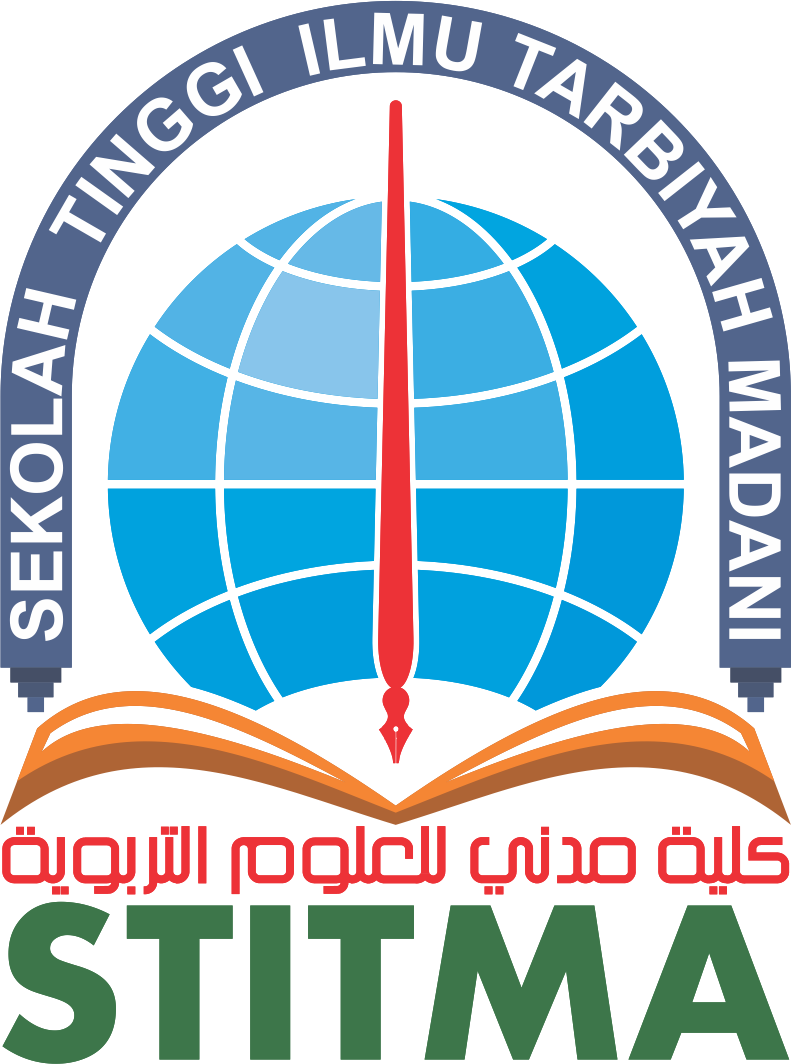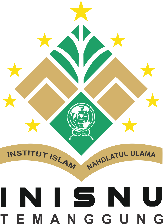The Educational Value of Contextual Sufism in Kaca Benggala Films
DOI:
https://doi.org/10.59944/postaxial.v1i1.152Keywords:
Educational Value, Contextual Sufism, FilmAbstract
This reseach aims to explain the educational value of Sufism contextual in the film Kaca Benggala. The researchers used content analysis and interviews to obtain information of the content Kaca Benggala film. There are two contextual values of Sufism educational in the film Kaca Benggala as follows; the first, the value of takhliatul qolbi (puring the heart from reprehensible traits), someone who does not have a pure heart and commits a disgraceful act, then they will receive recompense and destruction, therefore someone who has a clean heart and stay away from despicable acts they will get mercy from Allah SWT. Second, the value of tahliatul qolbi (heart with dzikrullah), someone who has a pure heart and riyadhah will receive grace from Allah SWT and will be elevated in rank both in the life of the world and the hereafter. The values of contextual Sufism educational in the film Kaca Benggala can be a reflection of education today, considering that in the modern era many people are greedy, arrogant and revengeful towards others.
References
Chasanah, U. (2021). Nilai-Nilai Pendidikan Agama Islam Multikultural Berbasis Tasawuf (Studi Fenomenologis Pada Selosoan Di Pesantren Ngalah). Journal Multicultural of Islamic Education, 5(19), 167–175.
Fitrianto, I., Hamid, R., & Mulalic, A. (2023). The effectiveness of the learning strategy" think, talk, write" and snowball for improving learning achievement in lessons insya’at Islamic Boarding School Arisalah. International Journal of Post Axial: Futuristic Teaching and Learning, 13–22.
Hamre, B. F., & Kragh, J. V. (2023). Writing the history of Nordic disability and mental disorders. In R. J. Tierney, F. Rizvi, & K. Ercikan (Eds.), International Encyclopedia of Education (Fourth Edition) (Fourth Edi, pp. 435–445). Elsevier. https://doi.org/https://doi.org/10.1016/B978-0-12-818630-5.12046-9
Hsieh, H. F., & Shannon, S. E. (2005). Three Approaches to Qualitative Content Analysis. Qualitative Health Research, 15(9), 1277–1288. https://doi.org/10.1177/1049732305276687
Ibnu Fitrianto, F. M. A. (2018). MODEL PEMBELAJARAN PROGAM PEMANTAPAN BAHASA ARAB DAN SHAHSIAH (KEMBARA) KE 4 MAHASISWA KOLEJ UNIVERSITI ISLAM ANTAR BANGSA SELANGOR (KUIS) TAHUN 2018. Nasional Conference on Islamic Civilization University of Darussalam Gontor, 1(First Publishing), 121–135.
Jalaluddin, H. (2017). Filsafat Pendidikan Islam dari Zaman ke Zaman. PT RajaGrafindo Persada.
M. Amin Syakur. (2014). Tasawuf Kontekstual; Solusi Problem Manusia Modern. Pustaka Pelajar.
M. Zainal Abidin. (2009). Gagasan Tasawuf Konstekstual K.H. Hamdani Bakran Adz Dzakiey Al Banjari. Al-Banjari, 8(2), 133–150.
Mahfud, C. (2019). Evaluation of Islamic Education Curriculum Policy in Indonesia. Premiere Educandum : Jurnal Pendidikan Dasar Dan Pembelajaran, 9(1), 34. https://doi.org/10.25273/pe.v9i1.4016
Mannan, A. (2018). Esensi Tasawuf Akhlaki Di Era Modernisasi. Aqidah-Ta : Jurnal Ilmu Aqidah, 4(1), 36–56. https://doi.org/10.24252/aqidahta.v4i1.5172
Mardhiah, Amaliyah, H., & Hakam. (2021). Developing Learning Competencies of Multicultural and Local Wisdom Values-Based Islamic Religious Education in Higher Education in Indonesia. Hayula: Indonesian Journal of Multidisciplinary Islamic Studies, 5(1), 81–92.
Mashar, A. (2015). TASAWUF : Sejarah, Madzhab, dan Inti Ajarannya. Al-A’raf : Jurnal Pemikiran Islam Dan Filsafat, 12(1), 97–117. https://doi.org/10.22515/ajpif.v12i1.1186
Muttaqin, I. (2023). CHALLENGES OF ISLAMIC EDUCATION MANAGEMENT IN THE DIGITAL ERA. Ta’allum: Jurnal Pendidikan Islam, 10(2), 343–364. https://doi.org/10.21274/taalum.2022.10.2.343-364
Nashihin, H., Ali, M., Siregar, M., & ... (2022). Kontribusi Pemikiran Perguruan Tinggi: Pendidikan Islam Lansia Integratif berbasis Tasawuf-Ecospiritualism. The 4th International Conference on University-Community Engagement (ICON-UCE), 300–309.
Nashihin, H., Aziz, N., Adibah, I. Z., Triana, N., & Robbaniyah, Q. (2022). Konstruksi Pendidikan Pesantren Berbasis Tasawuf-Ecospiritualism Dan Isu Lingkungan Hidup. Jurnal Pendidikan Islam, 11(1), 1163–1176. https://doi.org/10.30868/ei.v11i01.2794
Nasrullah. (2017). Mempertahankan Tradisi Tasawuf: Tafsir Tekstual dan Kontekstual Tarekat Menurut Kaum Tua di Minangkabau. Jurnal Syahadah, 5(2), 27–59.
Qomar, M. (2014). Ragam Pengembangan Pemikiran Tasawuf Di Indonesia. Epistemé: Jurnal Pengembangan Ilmu Keislaman, 9(2), 250–284. https://doi.org/10.21274/epis.2014.9.2.249-284
Razali, F., Sulaiman, T., Ayub, A. F. M., & Majid, N. A. (2022). Effects of Learning Accessibility as a Mediator between Learning Styles and Blended Learning in Higher Education Institutions during the Covid-19 Pandemic. Asian Journal of University Education, 18(2), 569–584.
Rofi, S., Prasetiya, B., Setiawan, B. A., Jember, U. M., Jember, U. M., & Info, A. (2019). Pendidikan Karakter Dengan Pendekatan Tasawuf Modern Hamka dan Transformatif Kontemporer. INTIQAD: Jurnal Agama Dan Pendidikan Islam, 11(2), 396–414.
Saefulloh, M. (2014). Tasawuf sebagai Solusi Alternatif dalam Problematika Modernitas. ISLAMICA: Jurnal Studi Keislaman, 2(2), 207–216. https://doi.org/10.15642/islamica.2008.2.2.207-216
Sholikhin, A. (2019). Tarekat Sebagai Sistem Pendidikan Tasawuf (Studi Karakteristi tik Sistem Pendidikan Tarekat Qodiriyah Qo wa Naqsabandiya iyah di Kabupaten Ogan Komering ing Ilir). Conciencia; Jurnal Pendidikan Islam, 1–13.
Snell, S. A., Shadur, M. A., & Wright, P. M. (2005). Human Resources Strategy. In The Blackwell Handbook of Strategic Management (pp. 631–653). Wiley. https://doi.org/10.1111/b.9780631218616.2006.00024.x
Suryadarma, Y., & Fitriyanto, I. (2020). Taá1bÄ«q Al-Manhaj Al-DirÄsi fi Taâ€TMlÄ«m Al-Lugah Al-Arabiyyah li Al-Daurah Al-Mukaá1¡á1¡af bi Markaz Al-DaurÄt wa Al-TadribÄt JÄmiâ€TMah DÄr Al-Salam Gontor. ALSINATUNA, 5(1), 72–87. https://doi.org/10.28918/alsinatuna.v5i1.2467
Thohir, U. F. (2016). Tasawuf Sebagai Solusi Bagi Problematika Kemodernan: Studi Pemikiran Tasawuf M. Amin Syukur. Jurnal THEOLOGIA, 24(2), 43–68. https://doi.org/10.21580/teo.2013.24.2.327
White, M. D., & Marsh, E. E. (2006). Content analysis: A flexible methodology. Library Trends, 55(1), 22–45. https://doi.org/10.1353/lib.2006.0053






